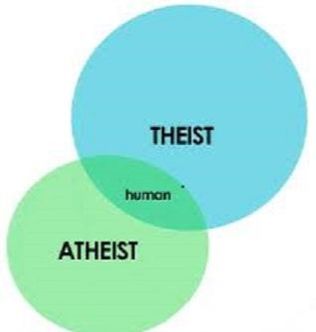
Eighty-eight university students were randomly assigned to either a religious or control prime condition. A dictator game was completed to obtain an indication of pro-social behavior (PSB).
Lifetime theists reported significantly higher religious CREDs exposure levels than lifetime atheists, though not convert atheists. Conversely, lifetime atheists reported significantly lower CREDs exposure scores than convert atheists. Convert atheists in the prime condition were significantly more pro-social than lifetime atheists. Additionally, higher scores on the CREDs exposure measure equated to higher PSB in the religious condition than the control condition.
The results are consistent with the view that supernatural belief formation is an interactive process between both context and content biases, and that in order to accurately test for implicit theism, past personal differences in exposure to religious CREDs should be considered.
Hitzeman, C. & Wastell, C. (2017). Are Atheists Implicit Theists? Journal of Cognition and Culture, 17(1-2), 27-50
 RSS Feed
RSS Feed